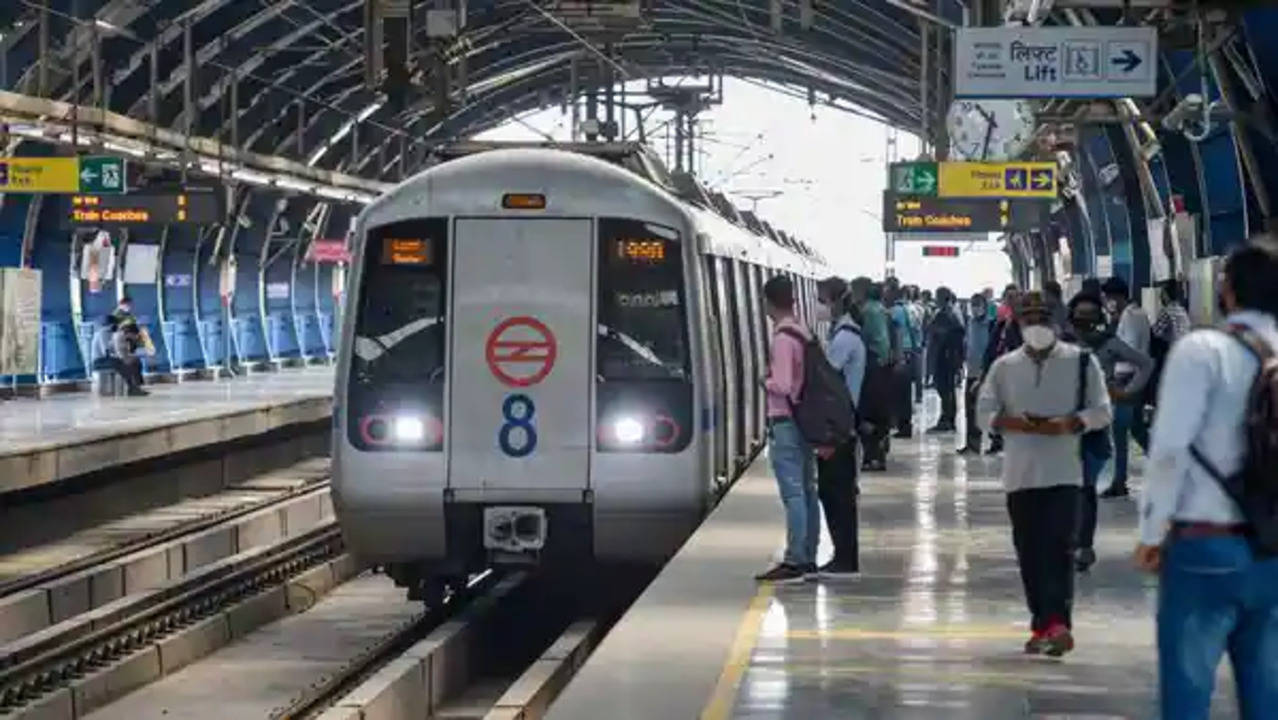Rajiv Chowk, Kashmere Gate metro stations hosts 'Partition of India' themed exhibition till August 14
The Rajiv Chowk Metro Station in Delhi hosted the opening of a themed exhibition on the Partition of India on Wednesday, according to officials. Vikas Kumar, the CEO of Delhi Metro Rail Corporation (DMRC), officially inaugurated the exhibition to commemorate Partition Horrors Remembrance Day on August 14 in front of the organization's directors and senior citizens.

Representative Image
Photo : PTI
New Delhi: The Rajiv Chowk Metro Station in Delhi hosted the opening of a themed exhibition on the Partition of India on Wednesday, according to officials.
Vikas Kumar, the CEO of Delhi Metro Rail Corporation (DMRC), officially inaugurated the exhibition to commemorate Partition Horrors Remembrance Day on August 14 in front of the organization's directors and senior citizens.
According to a statement from the DMRC, it was established per the Ministry of Culture's instructions and as a component of the ongoing Azadi Ka Amrit Mahotsav.
"Partition Horrors Remembrance Day" has been envisaged to bring to light the agony, suffering and pain of millions of people who were the sufferers of the Partition. It is to remind the country of the largest displacement of human population in the last century, which also claimed the lives of a large number of people," it said.
The Indira Gandhi National Center for the Arts and the Indian Council of Historical Research (ICHR) organised the exhibition, which includes panels in both Hindi and English (IGNCA). Visitors can go there from August 10 to 14.
At the Kashmere Gate Metro Station, there is a comparable display going on. According to an exhibition poster provided on the Azadi ka Amrit Mahotsav , "The Partition of India in its most basic form is a story of unprecedented human displacement and human migration. It is story in which millions sought new homes in an environment that was alien and restive."
"About six million non-Muslims moved out of what had become West Pakistan and another 6.5 million Muslims moved out from the Indian part of Punjab, Delhi, etc., into West Pakistan. In the east, an estimated 2 million non-Muslims moved out of East Bengal (Pakistan) and later in 1950 another 2 million non-Muslims moved into West Bengal (India). It is estimated that about one million Muslims had moved out of West Bengal," the poster said.
Trending:
End of Article
Subscribe to our daily Newsletter!





Related News





Delhi Weather: Heatwave On The Horizon For Delhiites? Here's What Expert Say

Traffic Alert Issued in Delhi For Hanuman Jayanthi Events Today; Check Diversions

Delhi’s RRTS Over Barapullah Flyover To Be Ready By May? Here’s The Update

Delhi Environment Minister Seeks Detailed Report on Ghazipur Landfill Fire in Next 48 Hours

Ghazipur Landfill Site Fire: Delhi Police Files FIR Against Unknown Person









